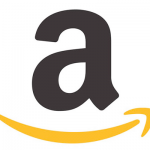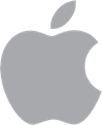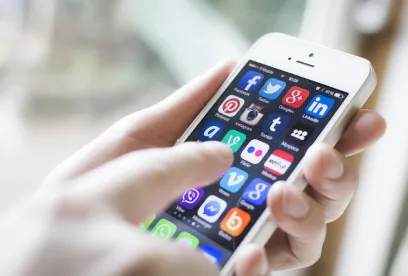A Tale of Two Hearings: Breaking Down the July 2020 Hearing on Tech Marketplace
They appeared at the hearing, appropriately enough, digitally. This allowed the witnesses, captains of the tech industry, to be in two places at once on July 27, 2020, when they testified before the House Subcommittee on Antitrust, Commercial, and Administrative Law. When it came to their conduct in their respective markets, the CEOs and the members of the Subcommittee also were in separate places.
Jeff Bezos, CEO, Amazon.com, Inc.; Sundar Pichai, CEO, Google parent Alphabet, Inc.; Tim Cook, CEO, Apple, Inc.; and Mark Zuckerberg, CEO, Facebook, Inc. testified live via web video before the Subcommittee chaired by David N. Cicilline of Rhode Island. The Subcommittee is part of the House Committee on the Judiciary, chaired by Jerrold Nadler of New York. Twitter CEO Jack Dorsey declined an invitation from Subcommittee Republicans, much to their irritation. As President Trump’s favorite bullhorn, Twitter has drawn the attention of the commander in chief and his allies for flagging some of his tweets as violations of Twitter’s “abusive behavior” policy.
To hear the CEOs tell it, their companies are building a better world. And in many ways they certainly are. This article was drafted on an Apple computer using Microsoft Word with some research performed via Google. It will be noticed on Twitter, and it may even make its way to a Facebook page near you. The CEOs say their platforms give individuals and businesses access to tools and information they would never have had before, and much of it for free, they said. They are socially and environmentally responsible. They are creating jobs. They connect people with each other, with valuable products and services, and with information in volumes never imagined. They are doing all of this in the face of stiff competition from larger players in specific segments as well as smaller innovators and disruptors snapping at their heels.
To hear the Democratic members, the companies are ruthless, mercenary bullies who have little regard for fair competition or the privacy of individuals or companies. They use their dominance to act both as service providers and competitors against the retailers use their platforms. Their positions give them access to competitive information which makes them better able to compete with their own clients. Should any company start to give them a run for their money, these giants devour them. And, to hear some of the Republican members, the companies are biased against conservative points of view.
Tech industry expert, author and commentator Kara Swisher wrote in a New York Times column that while she prefers “public grillings with a side of shame,” it’s a mistake to refer to these companies as Big Tech. “[T]hey are not a monolith and some in this group are further along in understanding that with great power comes great responsibility — and, more important, accountability.”
We don’t know which companies Swisher was talking about, but each CEO expressed warm regards for antitrust law and fair competition, and privacy, too. Here we have broken down what the CEOs wanted the Subcommittee to know, and what certain members of the Subcommittee, primarily Democrats, wanted the world to know about each corporation.
What Bezos Wanted the Subcommittee to Know About Amazon, and Him.
 Amazon is a “came from nothing” story. In his prepared statement, Bezos painted a picture of the American Dream. And that it is. A child of immigrants and humble beginnings, he explained how he grew Amazon from an idea funded by his parents’ modest savings to not only one of the most successful companies in the history of capitalism, but one that contributes to the country and the world in a positive way. All the while, he said, the company does so in an “extraordinarily competitive” environment.
Amazon is a “came from nothing” story. In his prepared statement, Bezos painted a picture of the American Dream. And that it is. A child of immigrants and humble beginnings, he explained how he grew Amazon from an idea funded by his parents’ modest savings to not only one of the most successful companies in the history of capitalism, but one that contributes to the country and the world in a positive way. All the while, he said, the company does so in an “extraordinarily competitive” environment.
Amazon creates and protects jobs. Amazon has invested more than $270 billion in the U.S. during the last decade, Bezos said, creating nearly 700,000 indirect jobs to areas of the country that needed them most. During the COVID-19 crisis it has hired 175,000 employees, many of whom had lost jobs elsewhere.
Amazon helps small businesses and creates jobs around the world, he said. “There are now 1.7 million small and medium-sized businesses around the world selling in Amazon’s stores. More than 200,000 entrepreneurs worldwide surpassed $100,000 in sales in our stores in 2019. On top of that, we estimate that third-party businesses selling in Amazon’s stores have created over 2.2 million new jobs around the world.”
It’s tough out there. “The global retail market we compete in is strikingly large and extraordinarily competitive,” he said. “Amazon accounts for less than 1% of the $25 trillion global retail market and less than 4% of retail in the U.S. … [M]ore than 80 retailers in the U.S. alone earn over $1 billion in annual revenue … Every day, Amazon competes against large, established players like Target, Costco, Kroger, and, of course, Walmart—a company more than twice Amazon’s size.”
Amazon is a positive force in the universe. Bezos told the lawmakers that Amazon is an environmentally and socially responsible corporation, too. It is committed to the zero-carbon goals of the Paris Agreement, purchasing 100,000 electric delivery vans from a Michigan manufacturer, operating 91 solar and wind projects, and investing $100 million in global reforestation. Amazon recently opened the largest homeless shelter in Washington state. It helps fund computer science education for thousands of children and young adults. It funds scholarships for low-income students.
Amazon welcomes the antitrust probe. “Amazon should be scrutinized,” Bezos said, adding, though, so should “all large institutions, whether they’re companies, government agencies, or non-profits.”
What the Subcommittee Wanted the World to Know about Amazon.
Amazon uses competing sellers’ data. In July 2019 Amazon attorney Nate Sutton testified that Amazon does not use any specific seller data when creating its own products. It’s policy bars this practice. Since then, the Wall Street Journal reported that Amazon violates this policy, and it has been questioned how closely the policy is monitored or enforced. According to The Washington Post (owned by Bezos), the Amazon CEO “testified that he couldn’t confirm that the company didn’t use data it collects regarding sales of products in its marketplace to launch its own private-label goods.”
Amazon uses predatory pricing. In 2009, Diapers.com was Amazon’s largest and fastest competitor in the diaper market. Amazon allegedly tried to get consumers not to purchase from its rival. In 2010 Amazon went after Diapers.com with promotional prices made low by Amazon’s willingness to lose more than $2 million in a single month. Once Diapers.com was struggling, Amazon bought it, then increased the price of Amazon diapers.
Amazon bullies and intimidates. One business owner, a bookseller, said Amazon uses fear and market power over smaller businesses; they are not treated like the valued partners Amazon would have everyone believe. The bookseller said that as sales grew they were eating into Amazon’s market share. Without warning or explanation, Amazon allegedly retaliated by restricting their sales, which soon vanished. She said she sent more than 500 communications to Amazon, including to Bezos, himself, in the past year to address specific issues. There was not a single meaningful response from Amazon, the business owner said. Apparently numerous businesses reached out to Congress to share similar experiences. One small business owner who sells apparel to construction workers and firefighters, was making $60,000 a year on one product. Amazon launched a competing version at a lower price and drove the small business’ sales to zero overnight.
Amazon sellers have no real choice. Amazon has nearly seven times the market share of their closest ecommerce competitor. Small businesses have no real option; they must rely on Amazon to make online sales. There are 2.2 million active sellers on Amazon, and about 37% rely on Amazon as their sole source of income. This means more than 800,000 people are relying on Amazon to make a living.
What Pichai Wanted the Subcommittee to Know About Google, and Him.
 He had humble beginnings. Alphabet, Inc. CEO Sundar Pichai, who is from India and was raised in a two-room apartment, told the committee that he had little access to computers growing up. He was amazed by the computer lab at Stanford University, where he earned an M.S. degree. He also received an MBA from the Wharton School of the University of Pennsylvania. If anyone is looking for a good immigrant story, Pichai’s would certainly qualify.
He had humble beginnings. Alphabet, Inc. CEO Sundar Pichai, who is from India and was raised in a two-room apartment, told the committee that he had little access to computers growing up. He was amazed by the computer lab at Stanford University, where he earned an M.S. degree. He also received an MBA from the Wharton School of the University of Pennsylvania. If anyone is looking for a good immigrant story, Pichai’s would certainly qualify.
Google services make so much possible. He said 140 million students and educators use G Suite for Education to stay connected during the pandemic, and that nearly a third of small business owners say that without Google’s digital tools they would have had to close all or portions of their business. He said five million Americans are gaining digital skills through Grow with Google, “part of our $1 billion initiative to expand economic opportunity,” and millions of small businesses connect with customers through Maps and Search. Mobile operators can build and sell devices without paying Google licensing fees and without having to integrate with Google products; this “greatly reduces device prices” for billions of consumers around the world.
Google is a big employer. Google employs 120,000 people, more than 75,000 of whom are in the U.S.
Google invests in America … In 2018 the company invested more than $20 billion across the U.S., making it the largest capital investor in the nation that year.
… and in the world. The company’s research and development spend was more than $90 billion over the last five years.
Investments are producing. He said Google is helping America “solidify its position as the global leader in emerging technologies like artificial intelligence, self-driving cars, and quantum computing.” Google’s technology could eventually lead to medical breakthroughs and more efficient batteries.
Free services have real value. Google Search, Gmail, Maps, and Photos are free and bring “thousands of dollars a year in value to the average American.”
Competition is fierce. Pichai said “people have more ways to search for information than ever before,” citing the proliferation of apps, the voice searches available by asking Alexa, the Twitter news feeds, the ability to quickly ask a friend via WhatsApp, and recommendations from Snapchat or Pinterest. Searching for products can be done at Amazon, eBay, Walmart or others. Digital advertising competition comes from Twitter, Instagram, Pinterest, Comcast, and others. This has driven down the cost of advertising he said, resulting in “savings passed down to consumers through lower prices.”
They want to cooperate. Pichai said Google is committed to protecting consumers, maintaining America’s “competitive technological edge in the world,” and ensuring that all Americans have access to technology and the opportunity it enables.
What the Subcommittee Wanted Everyone to Know About Google.
Google dominates search, facilitating 85% of all online queries.Businesses often sink or swim based on whether or where they appear in search results. A number of businesses told the committee that Google steals their content to crush competition. Most businesses stayed anonymous because they feared Google would retaliate against them. One business owner said his website was thriving until Google took his content. His web traffic decreased by 80%. He was forced to downsize and layoff half his employees. Google used to surface the most relevant search results; now they surface the most profitable ads and their own sites.
Google searches lead to Google sites. An article from TheMarkup.org said that 63% of web searches on Google take people to Google websites. It also said that 41% of the first page of Google search results is taken up by Google products. https://themarkup.org/google-the-giant/2020/07/28/google-search-results-prioritize-google-products-over-competitors
Google hammers potential competitors. When businesses show a “proliferating threat” to Google, it puts an end to their traffic. One example came from competition in a vertical market, the restaurant review space where Yelp! was making headway. Google allegedly stole the Yelp! reviews to compete with it. When Yelp asked Google to stop the practice, Google allegedly threatened to delist Yelp! entirely. Google’s own documents allegedly revealed that it surveils companies to identify threats.
Google abandoned the Pentagon, but assisted Communist China. In October 2018, Google dropped out of the running for a Pentagon contact called Jedi, which was valued at more than $10 billion dollars. The company cited the project’s misalignment with its corporate values. Later, Marine General Joseph Dunford, the Chairman of the U.S. Joint Chiefs of Staff warned the Senate that the Chinese military was benefiting from Google’s work. One congressman said Google and China share a comfort with corporate espionage and theft of intellectual property, such as taking certain song lyric images which the creator of the images embedded with a watermark. Google was caught in the act, the representative said.
Google pays lip service to privacy. In 2007 Googled purchased Double Click, a leading provider of online advertising tools. Alarm bells were raised about Google’s access to the data and how it might connect a users’ personal identity to their browsing activity. Google pledged it would not connect the data. In June 2016, Google connected the data and effectively destroyed anonymity on the internet, one legislator said, expressing concern that Google “surveils” Americans. Because Google is dominant, “users have no choice but to give up their privacy.”
What Cook Wanted the Subcommittee to Know About Apple.
 Apple is proudly American. CEO Tim Cook said Apple’s success is “only possible in this country.” The company endeavors to “enrich people’s lives” and has done so with “many revolutionary products, not the least of which is the iPhone.”
Apple is proudly American. CEO Tim Cook said Apple’s success is “only possible in this country.” The company endeavors to “enrich people’s lives” and has done so with “many revolutionary products, not the least of which is the iPhone.”
Competition is fierce. “The smartphone market is fiercely competitive, and companies like Samsung, LG, Huawei, and Google, have built very successful smartphone businesses … Apple does not have a dominant market share in any market where we do business.”
Privacy is paramount. “We build products that, from the ground up, help users protect their fundamental right to the privacy of their personal data,” Cook said.
The App Store is good for everyone. The App Store is a safe and supportive place for developers to create applications for the iPhone, Cook testified. “For the vast majority of apps on the App Store, developers keep 100% of the money they make. The only apps that are subject to a commission are those where the developer acquires a customer on an Apple device and where the features or services would be experienced and consumed on an Apple device.” The commissions are lower than those required by Apple’s competitors.
The App Store has been an innovation machine. Starting with only 500 apps, the store now hosts more than 1.7 million apps, “only 60 of which are Apple software.” If Apple is a gatekeeper, Cook said, “what we’ve done is open the gate wider.”
The App Store is an “economic miracle.” “More than 1.9 million American jobs in all 50 states are attributable to the App Store ecosystem,” and has facilitated revenues of more than half a trillion dollars globally, $138 billion of which landed in the United States.
Competition is good. “I share the Subcommittee’s belief that competition is a great virtue, that it promotes innovation, that it makes space for the next great idea and that it gives consumers more choices,” said Cook.
What the Subcommittee Wanted Everyone to Know About Apple.
Apple rules. Apple dominates the U.S. smartphone market with more than one million iPhone users. According to Counterpoint Research, that’s 39% of the market. Note: Globally, Apple is number three behind Huawei and Samsung.
Apple picks the winners. Apple alone decides which apps its users may access. The company makes the rules and changes them along the way, which is why no developer has access to their rules to know how Apple decides which apps they will make available.
Apple eliminates competitors at will. Right after Apple released their ScreenTime app, it removed all competing apps for six months.
What Zuckerberg Wanted the Subcommittee to Know About Facebook.
 Facebook is a “came from nothing success.” CEO Mark Zuckerberg wanted the legislators to know that, while Facebook is successful now, it got there “the American way,” by “start[ing] with nothing and provid[ing] better products that people find valuable.”
Facebook is a “came from nothing success.” CEO Mark Zuckerberg wanted the legislators to know that, while Facebook is successful now, it got there “the American way,” by “start[ing] with nothing and provid[ing] better products that people find valuable.”
Facebook is good for all. Fueled by advertising sales, Facebook helps “millions of businesses connect with customers,” giving small companies and entrepreneurs “access to sophisticated tools that previously only the largest players had.”
Competition is fierce. Facebook faces “significant competition” not only in the U.S. but across the world. In fact, he said, “China is building its own internet.”
Facebook invests in the future. In the face of “intense competitive pressures” Facebook invests $10 billion a year in research and development.
Facebook is all about competition and innovation. Zuckerberg believes that “strong and consistent competition policy is vital because it ensures that the playing field is level for all.” Antitrust law is designed, in part, to foster innovation, he said, something “Facebook has been focused on since day one.” He listed the company’s advancements in artificial intelligence, augmented reality and virtual reality, and its contributions to the open-source community.
A positive force in the universe. Facebook creates “technology to enable social good” — such as allowing family members to check on one another during crises — and has implemented tools to facilitate charitable giving by users. Zuckerberg said their services have supported individuals and businesses during the COVID-19 pandemic, and has connected people to authoritative health information. The company has taken “aggressive steps” to snuff out dangerous misinformation.
Innovation and acquisition. In addition to inventing new services, Facebook has grown through acquisition. “When you acquire a company, you can benefit from their technology and talent, and when you are acquired you get access to resources and people you otherwise might never have been able to tap into.” Facebook “made Instagram and WhatsApp successful,” he said.
More rules needed. Acknowledging concerns that large tech companies have too much power, he said that companies like his should not be making “so many judgments about important issues like harmful content, privacy, and election integrity on their own.” Zuckerberg said regulators should play “a more active role” in these decisions and create “updated rules for the internet.” In the meantime, he said Facebook is addressing these concerns.
What the Subcommittee Wanted Everyone to Know About Facebook.
Facebook pummels competitors. Facebook takes an aggressive approach toward competitors to the point where those companies must put themselves up for sale. A March 2012 email cited at the hearing indicated Facebook wants to be even more aggressive toward other companies to get a foothold in different segments and replicate competing services.
Facebook buys off the competition. Facebook can buy any company it desires. When they found Instagram a threat, Zuckerberg apparently commented that the smaller company “can meaningfully hurt us without becoming a huge business.” Then Facebook bought them.
The committee cited an email Zuckerberg allegedly wrote in the wake of the Instagram deal. “One reason people underestimate the importance of watching Google is that we can likely always just buy any competitive startups, but it’ll be a while before we can buy Google.” Zuckerberg couldn’t remember the email, but said it sounded to him like he was joking.
Acquisitions neutralize competitors and hamper innovators. In February 2012, Zuckerberg told the company’s CFO that he wanted to buy Instagram. When he asked if he intended to neutralize a potential competitor or integrate their products, Zuckerberg allegedly answered “both.” Now if new entrants wish to go up against Instagram, they will struggle because Facebook already has deployed the mechanics of Instagram at enormous scale.
Time for a breakup? Judiciary Committee Chairman Jerry Nadler commented that Zuckerberg’s testimony seemed to be making Nadler’s point that Instagram should be broken off from Facebook.
Edited by Tom Hagy. Additional research by paralegal Kiersten Golsby of MoginRubin LLP.



 />i
/>i
